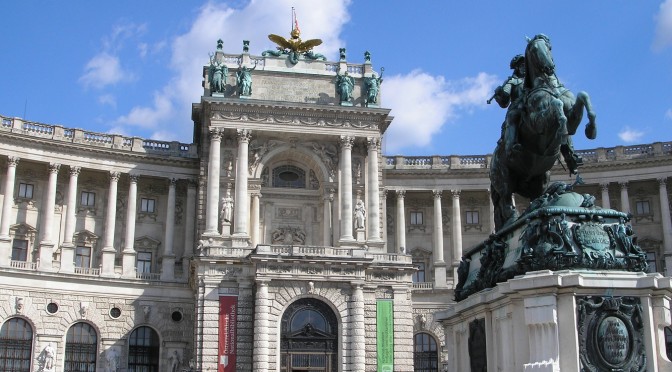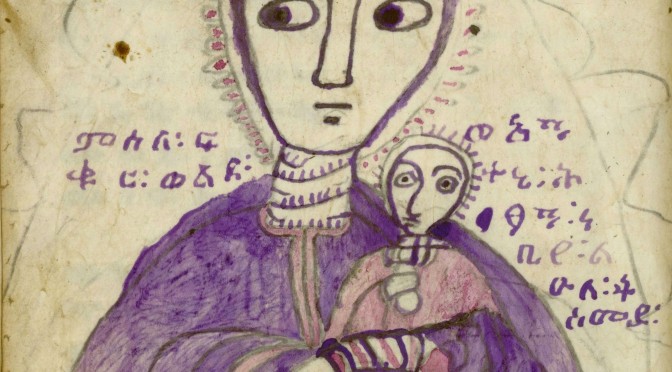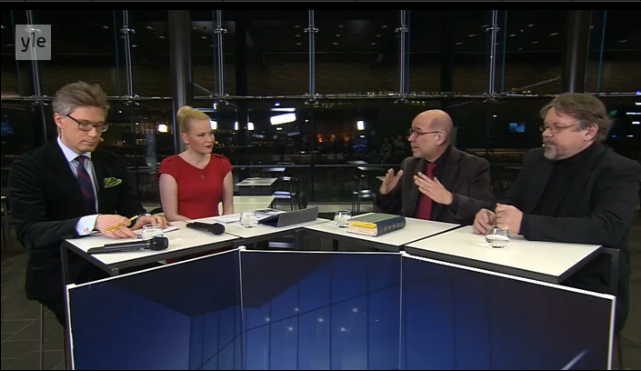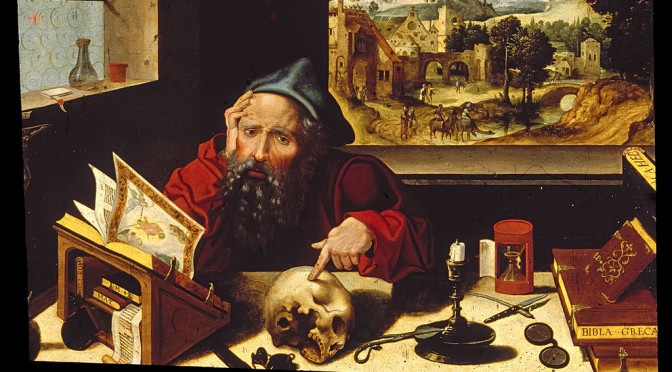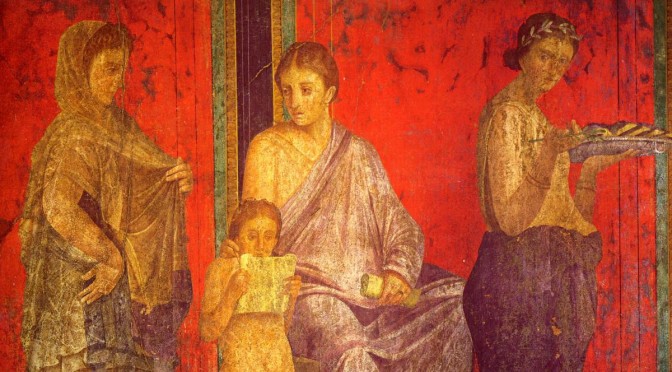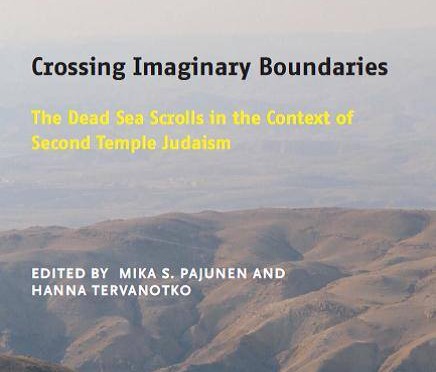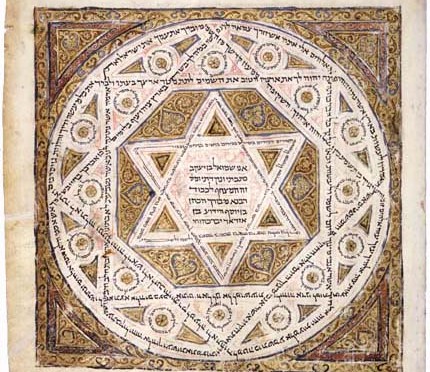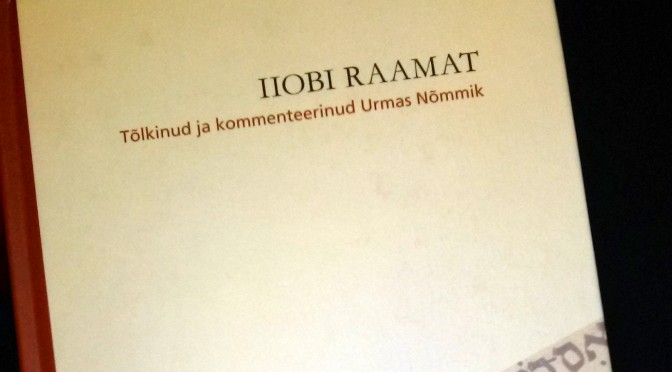This winter I was able to travel extensively throughout Europe to examine in person many of the Greek Exodus fragments that I am working on for my CSTT project. I had the opportunity to visit four different libraries and museums and see fragments of six Exodus manuscripts and a large number of additional ancient and medieval manuscripts. The untapped wealth of ancient materials that are stored in European institutions never ceases to amaze me! Continue reading Greek Fragments in European Libraries and Museums: A Whirlwind Tour
Call for Papers: Ancient Jewish Cosmology-workshop (Jerusalem, June 15-16)
CSTT Workshop: Ancient Jewish Cosmology – Sacred Time and Order
École biblique et archéologique française de Jérusalem, June 15‒16, 2015
CSTT’s Team 4 “Society and Religion in Late Second Temple Judaism” is organising a workshop on Ancient Jewish Cosmology. Cosmology is here broadly understood to deal with the cosmic world order and origin, but also matters related to acknowledging, finding out, and living out this cosmic order in everyday life. The aim is to identify forms and mechanisms of change in the notions and practices relating to Jewish cosmology: the origin, nature, and fate of the universe. Also ritual practices can be related to this theme: e.g., which beliefs are transmitted through ritual practices, prayer and divination; how the understanding of the divine is reflected in the earthly sphere (architecture, collective practices, calendar, correct prayer times, etc.). Cosmology plays a role in the way in which societies structure themselves and communities select and cherish their values and moral systems. Of special interest is the influence of Hellenistic philosophy and practices on Jewish thought. Continue reading Call for Papers: Ancient Jewish Cosmology-workshop (Jerusalem, June 15-16)
Workshop on Text, Ritual and Magic (Helsinki, April 14-15)
The workshop focuses on the interface between texts and magical or ritual practices. As a starting point, we wish to question and deconstruct the dichotomy between magic and religion. We are particularly interested in texts as material artefacts and their magical and ritual uses as well as practices described in texts. The presentations cover a variety of source materials and methodological approaches as the workshop brings together scholars working in different fields. Continue reading Workshop on Text, Ritual and Magic (Helsinki, April 14-15)
Musiikkia, uskontoa ja valtapyrkimyksiä
Musikaalisuudestaan tunnettu huippuyksikön johtaja Martti Nissinen nähtiin helmikuussa Radion sinfoniaorkesterin konsertin väliaikavieraana. Vapautettu Jerusalem -runoelmasta innoituksensa saanut konsertti lähetettiin suorana verkkolähetyksenä Yle Areenassa ja televisioitiin Yle Teema -kanavalla. Continue reading Musiikkia, uskontoa ja valtapyrkimyksiä
Diagnostics and Textual Studies
Intuition and Its Limitations
Decision-making in textual studies is largely based on intuition. The scholar is expected to know the sources and the approach very well and it is assumed that when all the relevant information concerning a given problem is poured into the scholar’s head, eventually the right solution will come out. The truth of the solution is then tested first by the scholar’s personal conviction and subsequently by the scholarly community: the more of your colleagues you manage to convince, the better your solution. Continue reading Diagnostics and Textual Studies
Research seminar on Cognitive Science of Religion (Helsinki, March 3-4)
Trends and Challenges in the Cognitive Science of Religion
University of Helsinki, March 3-4, 2015
Venue: (note: room has changed) Faculty Room Room 531, Faculty of Theology, University of Helsinki (Vuorikatu 3, 5th floor)
Cognitive Science of Religion (CSR) emerged in the 1990s to explain regularities of religious phenomena across time and place by using the growing body of knowledge from cognitive and evolutionary sciences. Today it is a pluralistic and interdisciplinary field that focuses on the intuitive mental mechanisms underpinning religious beliefs and behaviours as well as on the interaction of the human mind, social cognition, and cultural environment. CSR applies a wide variety of different theoretical perspectives, for example, from experimental psychology, neurosciences, biology and research on emotions. Continue reading Research seminar on Cognitive Science of Religion (Helsinki, March 3-4)
Suomalaiset Qumran-tutkijat ylittävät rajoja
Huippuyksikön tutkijat TT Mika Pajunen ja TT Hanna Tervanotko pääsivät tällä viikolla pitelemään käsissään uunituoretta työnsä tulosta, kun heidän toimittamansa kirja Crossing Imaginary Boundaries: The Dead Sea Scrolls in the Context of Second Temple Judaism ilmestyi. Kirja on Suomen Eksegeettisen Seuran tuorein julkaisu, ja se koostuu miltei kokonaan huippuyksikön tutkijoiden artikkeleista. Continue reading Suomalaiset Qumran-tutkijat ylittävät rajoja
One-day conference on “Power, Authority & Canon” in Edinburgh
We just received news of a highly interesting one-day conference, titled “Power, Authority & Canon“, that will be held at the University of Edinburgh on May 6, 2015. The conference is organized by Prof. Timothy Lim who recently published a book closely related to the topic of this conference (‘The Formation of the Jewish Canon‘). Continue reading One-day conference on “Power, Authority & Canon” in Edinburgh
New publication: “Crossing Imaginary Boundaries: The Dead Sea Scrolls in the Context of Second Temple Judaism”
Fresh from the printers! A new publication by the Finnish Exegetical Society, which is edited by two members of the CSTT, has just been released:
Pajunen, Mika S. & Hanna Tervanotko (eds.) (2015) Crossing Imaginary Boundaries. The Dead Sea Scrolls in the Context of Second Temple Judaism. Publications of the Finnish Exegetical Society 108. Helsinki: Finnish Exegetical Society. Continue reading New publication: “Crossing Imaginary Boundaries: The Dead Sea Scrolls in the Context of Second Temple Judaism”
Looking for Job in Helsinki
by Urmas Nõmmik
I already got a research job in Helsinki, at the CSTT. But is that all? No, in another sense I am still looking for Job …
Research on the book of Job can be a risky business – one can be stuck there for decades. I have been more or less dealing with Job since the mid-1990s. The book of Job is fascinating because of its highly complex theological-philosophical-existential content, and because of its complex philological and textual history. Hence, there is no end in sight to the study of the book of Job. One has still to look for Job. Continue reading Looking for Job in Helsinki

